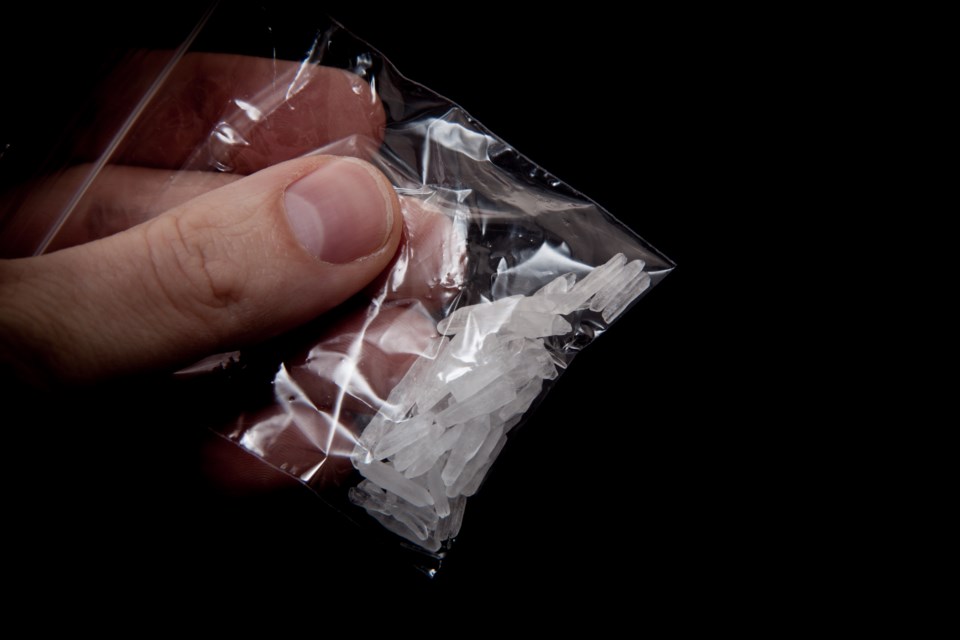Nov. 30 is National Meth Awareness Day in the United States, and while Canada does not typically recognize this day, the Moose Jaw Crystal Meth Strategy Committee believes it’s an important day to highlight the effects of this addictive, illegal stimulant.
U.S. president George W. Bush signed a proclamation in 2006 to observe Nov. 30 as National Meth Awareness Day.
Use of crystal meth — also known as ice, crystal meth, jib, meth or speed — has increased significantly in Moose Jaw since 2015, while it can come in the forms of crystal, tablet or powder that vary in appearance and potency, explained Mary Lee Booth, public relations co-ordinator for the committee.
Crystal meth can be smoked, injected, swallowed or snorted, while it is made using cold medicine and common household ingredients, such as battery acid, drain cleaner, paint thinner or anti-freeze.
“It has become a common drug of choice because it is cheap, very available, and highly addictive. Crystal meth causes the body to release high levels of dopamine, which leads to a rush of choice of euphoria that can last from four to 12 hours,” Booth said.
People who use crystal meth may often feel energetic, excited, and alert but can experience insomnia, high temperatures, increased heart rate, severe agitation, and aggression or violence. Paranoia, psychosis, hallucinations and brain damage may also occur in people who use crystal meth.
Crystal meth is often mixed and found in other illicit drugs, while there is a high risk to using street drugs since people might not be aware that potentially fatal substances — including fentanyl — could be mixed with meth, she continued. Furthermore, meth changes brain chemistry and function and can make people think and do things they do not typically choose to do.
“Addictions is a health issue. Unmet mental health needs drive people to drug misuse (while) there’s a close link between substance use disorder and past trauma,” added Booth. “There’s hope in recovery.”
There are several supports available in Moose Jaw for people struggling with crystal meth, such as:
- Your physician or nurse practitioner
- Healthline 811 or www.healthonline.ca
- Mental health and addiction services at Dr. F.H. Wigmore Regional Hospital at 55 Diefenbaker Drive, 306-691-6464
- Wakamow Manor (Detox Centre) at 200 Iroquois Street East, 306-694-4030
- Harm Reduction Program (needle exchange and access to safe smoking supplies) at Crescent View Clinic at 131 First Avenue Northeast, 306-691-2040
- Peer support programs such as Narcotics Anonymous and Nar-Anon, the latter for family members
The Moose Jaw Crystal Meth Strategy Committee invites residents to watch a locally filmed documentary called “Stop Mething Around,” a 71-minute video that features two people with experience using crystal meth.
The video — and its sequel — can be found on YouTube.
Meanwhile, the committee encourages parents and teens to complete a quiz about crystal meth and submit their answers to be entered into a draw for a $100 gift certificate to a restaurant of their choice.
The contest closes Friday, Dec. 10.
More information can be found at the committee’s website at www.hopesummit.ca/basic-01.
Also, with the Moose Jaw Crystal Meth Strategy Committee’s “Spread the word on meth” prevention and awareness campaign coming to an end in December, it is asking the community to rate how it performed during the past year.
Residents are encouraged to complete a survey and be entered for a $50 gift certificate to a business of their choice. The survey — www.surveymonkey.com/r/89PK8PQ — closes on Friday, Dec. 10.




